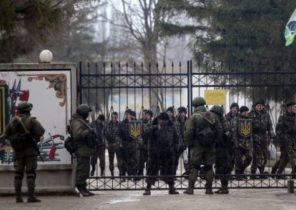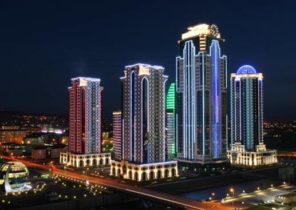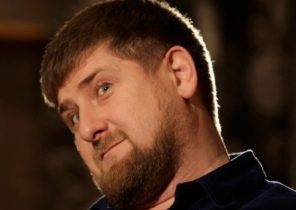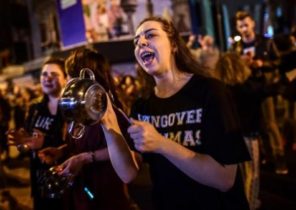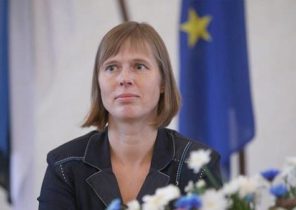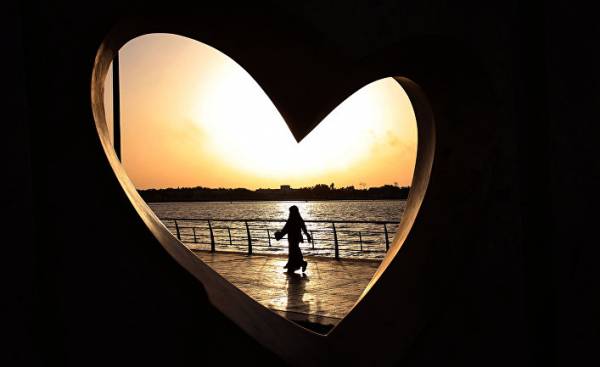
In the most conservative country in the world is changing, the crisis in oil prices is forcing the king to undertake reforms. From the new reality benefited the women.
The man on the lute plays “Ode to joy” by Beethoven, and then the work of the Iraqi composer. Men sit next to women, they listen to music. What’s the big deal?
The man with the lute name is Khalil al-Moval (Khalil AlMuwail), he intensely keeps your instrument the night before he barely slept. Actually he works as an IT specialist in a large hospital in the capital city Riyadh, but his passion is the Oud, the Arab lute, which religious people say that the one who plays it, has other vices. If a police officer religion catches the lute player in the game, he will break the tool. So it was here for decades.
To learn how to play the instrument and become a virtuoso performer, al-Moval every 14 days went for hour lesson in a neighboring country Bahrain, 500 miles there, 500 back. In Saudi Arabia he was unable to find a teacher.
But things are changing, even in the most conservative countries in the world. The government has terminated the powers of the notorious religious police. Already virtually invisible to those more than 3 thousand guardians of morality, who terrorized women for applying makeup and was arrested unmarried couples, if they were walking on the street. And this evening they are also there in the tent cultural center of Saudi Arabia, in which Khalil al-Moval gives a concert that ends with thunderous applause.
But what does it mean when the king of Saudi Arabia, custodian of the two Holy mosques of Mecca and Medina, is Recalling its formidable guardians of morality? And why the fundamentalists are silent instead of complaining about the decline of morals?
The main reason is: a fabulously rich Saudi Arabia no longer exists. The Kingdom is in one of the deepest crises since then, in 1938, first from sources to the East of the country was flooded with oil. Low oil price reduced the income of the country twice; the 2015 budget showed a deficit of 90 billion euros. The country got into debt.
Another reason is that Saudi Arabia was earlier the Bastion of order in the middle East, about which today no longer exists. It was destroyed by the Arab spring, wars in Iraq, Syria and Yemen. Mighty powers are fighting for their position in the region, primarily Iran and Saudi Arabia. All of this threatens the stability of the Kingdom.
For religious people, now there are more important issues than whether a pedicure “Haram” and, therefore, prohibited. Even the ban on driving for women could be lifted soon. Because the challenges are huge: will the government of king Salman to prevent a recession and to reduce its dependence on oil? Win Saudi Arabia in the fight against the jihadists, and then commit acts of terrorism? And whether, despite everything, to preserve the cohesion of their society?
Suddenly began to publicly ask the questions that until recently no one would have dared to articulate: why the higher clergy was the one spreading the nonsense that driving a car leads to female infertility? Why we interfered in this dear and cruel war in Yemen, which has killed about 10 thousand civilians and was kicked out 3 million people? Is it advisable to sell part of state oil company Saudi Aramco, or you can find other ways out of the financial crisis?
Why until that time, this word did not exist in public debates. But suddenly it sounded from everywhere, as if the economic crisis has pushed the country to a certain class of the late enlightenment. Everything will be revised again, we are talking not only about the distribution of finances and goods, but also the question of who will use the new freedoms and lose the old privileges. In short, the issue was the old social contract, the welfare against subordination.
The Pact, which the Sunni Wahhabis entered into with the dynasty of the Saudis more than 250 years ago, always bring mutual benefits. The Saudis ruled the country and oil revenues, the clergy, heads and hearts.
But now, faced economic crisis, political uncertainty and social change — and radical Wahhabism, the state religion, all this is nothing to oppose. It no longer corresponds to the spirit of the time, the religious framework does not give space for dreams of the young residents of Saudi Arabia, where at least three out of four citizens under 30 years of age.
The music also raises issues that will be reviewed. The government even organized a special Department, whose responsibilities include the organization of concerts and the construction of cinemas that were virtually banned in Saudi Arabia. This is an attempt to maintain control during the critical period. In a cab operator Uber is playing music charts from Kuwait, and in the fitness studios, Riyadh-women are engaged in training under pop version of the song Papa was a Rollin’ Stone.
Musician Khalil al-Muwala 42 years. He’s not exactly young, but not old. He also has a dream: he wants to introduce Saudi Arabia with the magic of music. “Our universe got the music from the Lord,” says al-Moval. He would love to open a music Institute. When he requested a license in the appropriate Department, he assured that he is going to only teach well-behaved students; he admired the healing power of music. But his application was rejected. The reason means that distribution of music will lead from the right path of the prophet.
Al-Moval, which belongs to the Shia minority, has sent a letter to the top Shiite cleric in Iraq’s Najaf (Nadschaf), Ayatollah Ali al-Sistani (Ajatollah Ali al-Sistani). Music is a Vice game the UD — Haram? The scientist said that music is allowed if it is not used for profane purposes. Al-Moval showed the letter to the Ministry, but it remained steadfast.
Not everything that happens in Saudi Arabia, be a logical explanation, reformers and conservatives are constantly fighting with each other, sometimes one win, sometimes the other. But in this time of change, young Saudis continue to try to use their freedom.
“I don’t want to be arrested by the police for what you’re there for your friend,” says Farhad, a 26-year-old photographer. He came with his friends into a new art gallery WmdahArtSpace in the North of Riyadh. Men want to learn to play the guitar — exotic desire for Saudi Arabia. “So far we have not had normal lives, says Abdullah, a 29-year-old marketing specialist. Now they let us at least breathe.”
When young Saudi Arabs talk about politics, their conversations always revolve around that person: the Prince Muhammad bin Salman. It is almost their same age, and he’s only 31, he looks at them with concrete supports of highways and walls of apartment buildings, he stands near his father, king Salman, towering over people.
The power of the Prince is amazing, he is the de facto ruler of the country. He is the Minister of defence and Alliance with the Sunni countries for two years has been a devastating war in Yemen, to fight there the Iran-backed Shia rebels. In addition, he fulfills the duties of a crown Prince and is the initiator of the reform programme “Vision 2030”, which envisages fundamental changes in all spheres of public life, from infrastructure to economy and culture.
Prince reshapes Kingdom, and some believe that only such a young man can, without doubts, without attachment to the past to do what is necessary in Saudi Arabia. It needs to take its allies familiar sinecures and to question old dogmas. Saudi Arabia is now experiencing the first effects of these changes.
Almost everything in the West is considered normal, banned in the Kingdom. Unmarried men cannot stay in the same room with young women; here, common radical separate education of boys and girls. On the other hand, for citizens of Saudi Arabia many facilities were something self-evident. First they had to pay for personal consumption of water, now they put the real electricity bills. Soon the state will raise taxes, and in the public administration will soon be paid for attendance, and require the result.
“No longer, as before, to come at ten in the morning in the office, thoroughly lunch, then for a long time to pray and 14 hours to go home,” says the Manager of the West, who for many years lived in the country.
© RIA Novosti, Rafael Demidovskaya who planned to blow up the terrorists, “al-Qaeda” in Riyadh
But given how difficult these changes can be seen by the fact that the Royal house was forced to cancel part of the cuts. As the dissatisfaction of public employees was very large, the income of some has reduced by a third, while the Royal house continues to swim in luxury.
For a long time the Kingdom was something of a sanctuary for many of its citizens. The monarch demanded obedience, but cared about them. New times suddenly demanded independence, a quality that does not fit into the autocratic system. How to operate such a deep transformation of society in such a short time? And, above all, where will this lead?
“About music we can talk. But singing women in front of men is forbidden, because men will stop to listen to the voice and will start to look at the female body,” says Musaed al-Muhaya (Musaed AlMuhaya) from the Islamic University, Professor of new media, but the man of the old guard. He’s one of the few conservatives who is willing at this time to speak publicly about innovations.
Because it would be unreasonable to criticise the “Vision 2030” of the Prince. Even the mufti little to say about it, as well as head of al-Mutawa, religious police, officially called the “Committee for the propagation of virtue and prevention of Vice”.
A well-known author Rants, al-Omari (Tirad al-Omari) in the beginning of the year ventured to Express doubts about the “Vision 2030”. Scaring him these many changes, high taxes, the war in Yemen, which cost so much money and so many lives. Since then, al-Omari is under house arrest.
Even the most conservative preacher Saad al-Braik (Saad Al-Braik) was summoned to the Ministry of the interior after he sided with one of the arrested colleagues, who criticized the planned Prince Mohammad concerts. Al-Braik with five million followers on Twitter is a star among the fundamentalists. But the times became unpredictable even for those who form the pillars of the religious establishment. More al-Braik writes on Twitter.
Perhaps the most notable discovery these days in Riyadh was that policy began to strictly control the religious establishment. And not Vice versa as it seemed earlier. The rulers allow radical sheiks to say when it is to their benefit, and, if required, silencing the situation.
“I am the bulldozer and get out of the way of anyone who gets in my way” — so, they say, said the Prince Mohammad chiefs of TV channels and media representatives when they presented their program “Vision 2030”. If it’s a real quote or just a rumor almost plays no role. No one would dare publicly Express doubts about the Royal progressive project.
But this does not mean that it is liberal times. Many political activists, Islamists, and Democrats are in prison. In 2016, 154 people were beheaded with a sword.
But women the changes have brought benefits. Now they run the banks and centres for the study of cancer, they work with market analysts, managers in stores, the editors, top models.
“It’s not something that they have immediately appreciated, they need only money,” says blogger who was disappointed that only makes the need of rulers to rebuild. Women are now forced to work to compensate for the falling incomes of their husbands. The ban on women driving should be lifted primarily because the salary of the driver will become too expensive.
The Leen al-Haidari (Leena Al-Haidari) 26 years old, she is an investment banker, he was educated in London. She lives in the same house with his father and three sisters, divorced parents. My father pushed her emancipation, sending her to study abroad without a male wardens — decision against fierce resistance the rest of the family.
Al-haydari it seems natural today to earn your own money and realize their professional plans, to choose a future husband. Dark hair fall free on her thin face, on his wrist she wears a blue bracelet that says “I am my own Keeper”. This phrase stems from the fact that women in Saudi Arabia are treated like children. If they want to get a job in the company, to leave or to do the surgery for breast augmentation without the written consent of the spouse, brother or father none of this is impossible.
“But the new generation no longer asks permission,” says Madiha al-Ajrush (Madeha Alajroush). The feminist 62 years, in 1999 she became the first female driver on the roads of Saudi Arabia. She was arrested, like many after it. Today al-Ajrush is the only psychoanalyst in the Kingdom. “The country is ripe for a change,” she says. She believes that fundamentalists lost, they “invest only in their power, not justice.”
In his youth al-Ajrush lived in new York, her father was a diplomat. Specialty therapist she received in the West. After returning to Saudi Arabia, she is first treated women with bipolar disorder and schizophrenia. But in the last three years it comes to women who have their own income and they can afford to pay for advice. They want to talk about the limitations and the clips are in their country, because they see it as the relationship with their personal problems. That disrespect can lead to depression or about the relationship of personality development from external freedom.
“Dramatic changes are in full swing for youth, the local culture is no longer critical,” says al-Ajroush. The Internet and travel abroad took decades isolation. Now the society of Saudi Arabia is ready to jump.
The country is at the beginning of the public debate, which is unclear in which direction it will go. All groups, men or women, old or young, fundamentalists or liberals, believe that the majority of the population for them. Perhaps this is not surprising in a country that is not engaged in public opinion polls in which families remain locked inside.
Only recently in the West of Riyadh, opened the Park Budeiri (Budschairi). Men and women walk together in the Park, picnics, sitting in a cafe, holding hands. This sensationally. Public life here was not earlier.
Suddenly the young Saudi Arabs have experienced all of what previously knew only from the Internet. Although still many women veil their face when at home on the TV screen a man appears. But now in Riyadh appeared the Dating app Tinder; unmarried couple share a rented apartment as a love nest. In Tahlia street (Tahlija) in Riyadh, which is strung like hotels and restaurants, men and women are looking for contacts, sneak, but less secretive.
Now there are both hard line, which does not tolerate deviations, but these new spaces.
In the evening playing on the Oud al-Moval looking for in the bookstore texts of Aristotle and Plato, he wants to know what they were talking about music. In fact, the philosophy in Saudi Arabia is forbidden, but even this has recently been possible to argue. On the shelf with the bestsellers, just upstairs in the first place is for weeks the book “the Art of thinking clearly” by Rolf the Dobelle (Rolf Dobelli). Al-Moval puts the book in the basket and goes to checkout.
